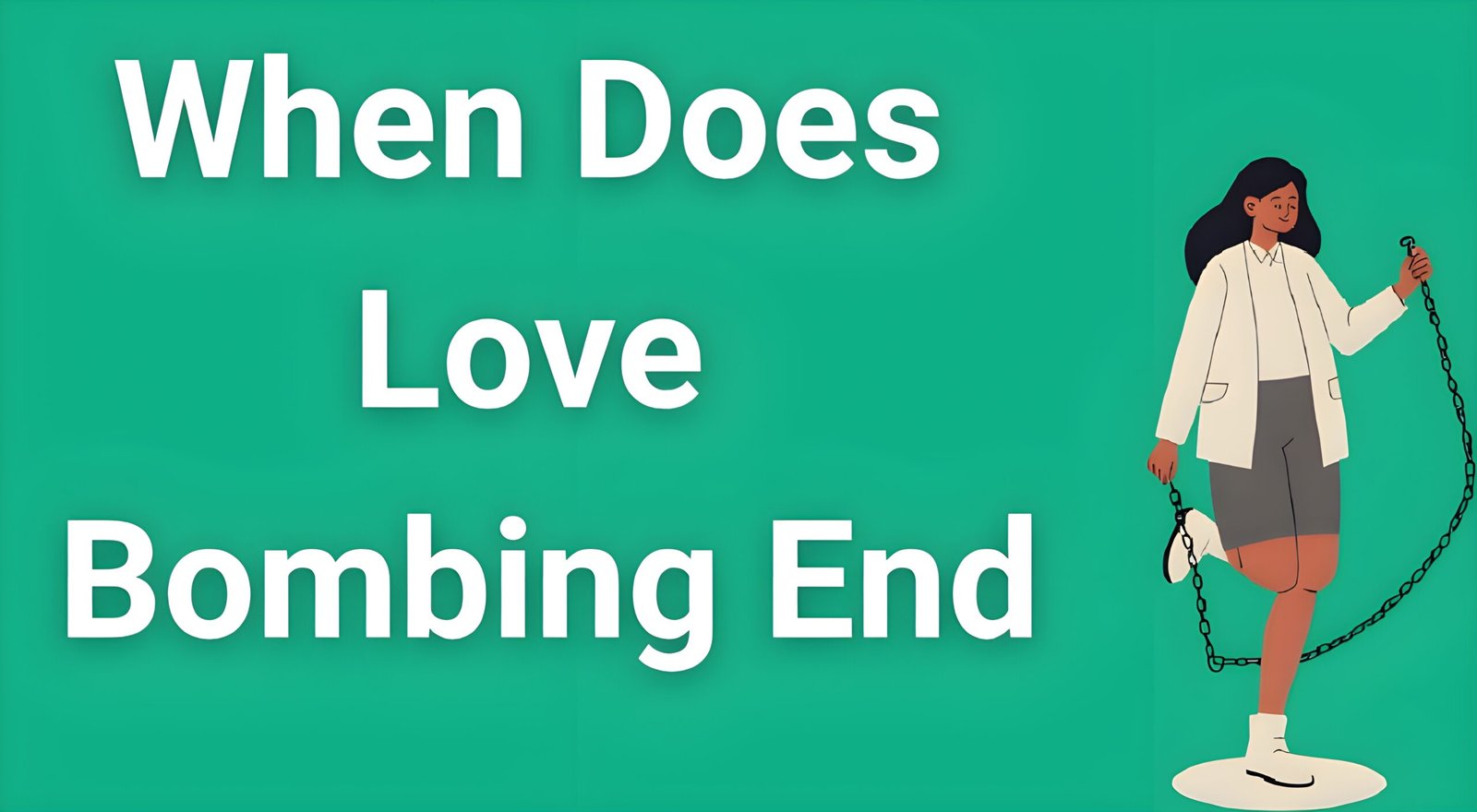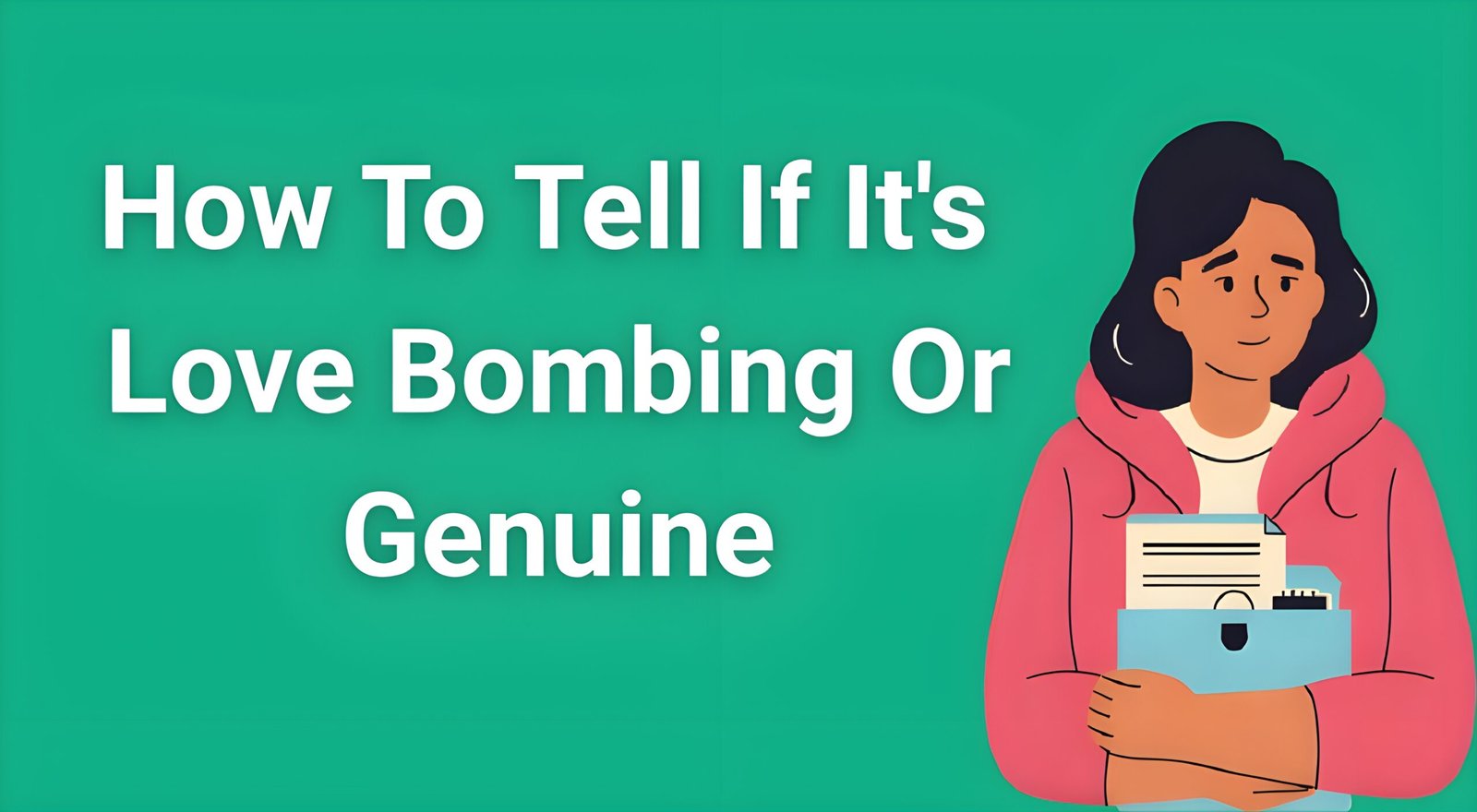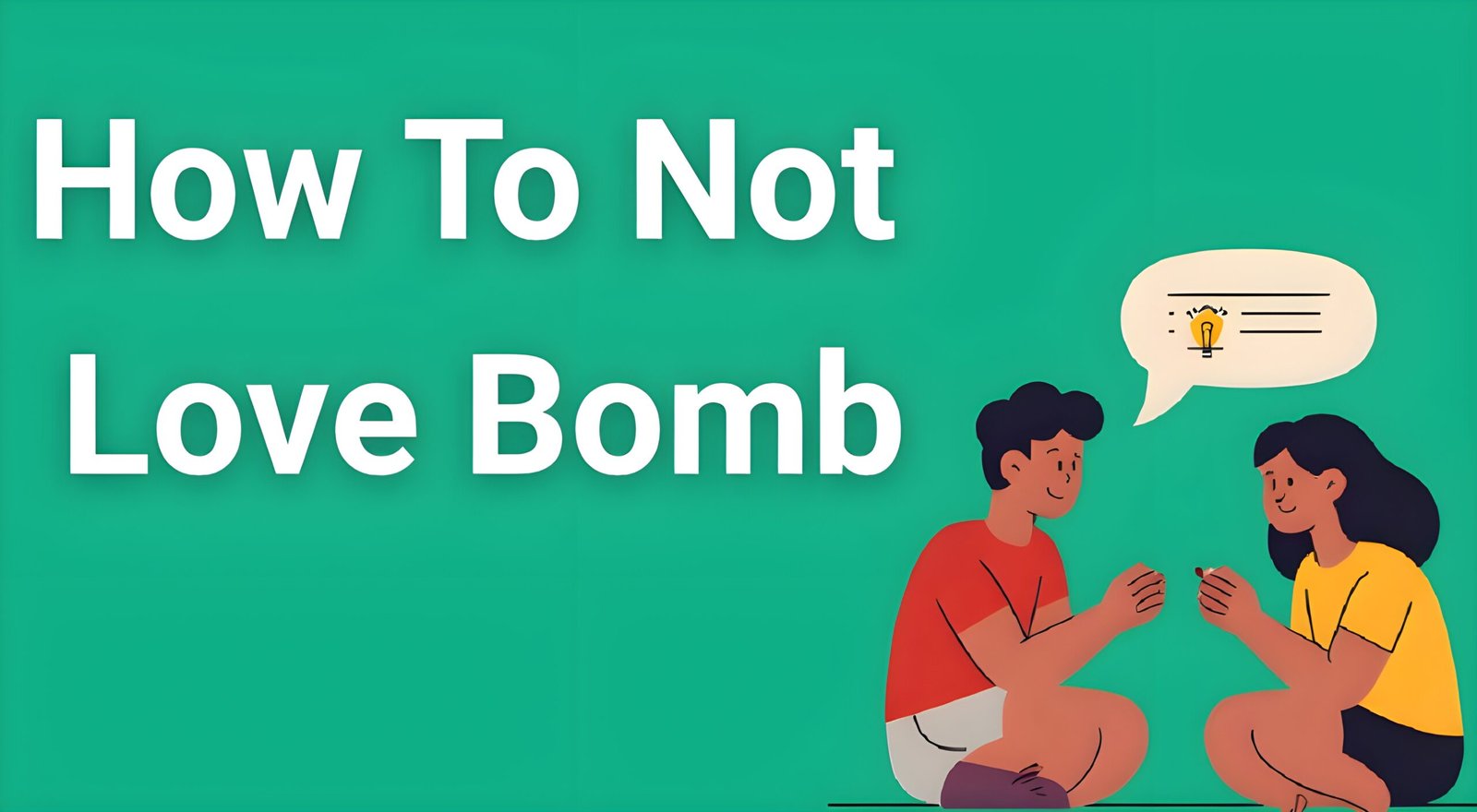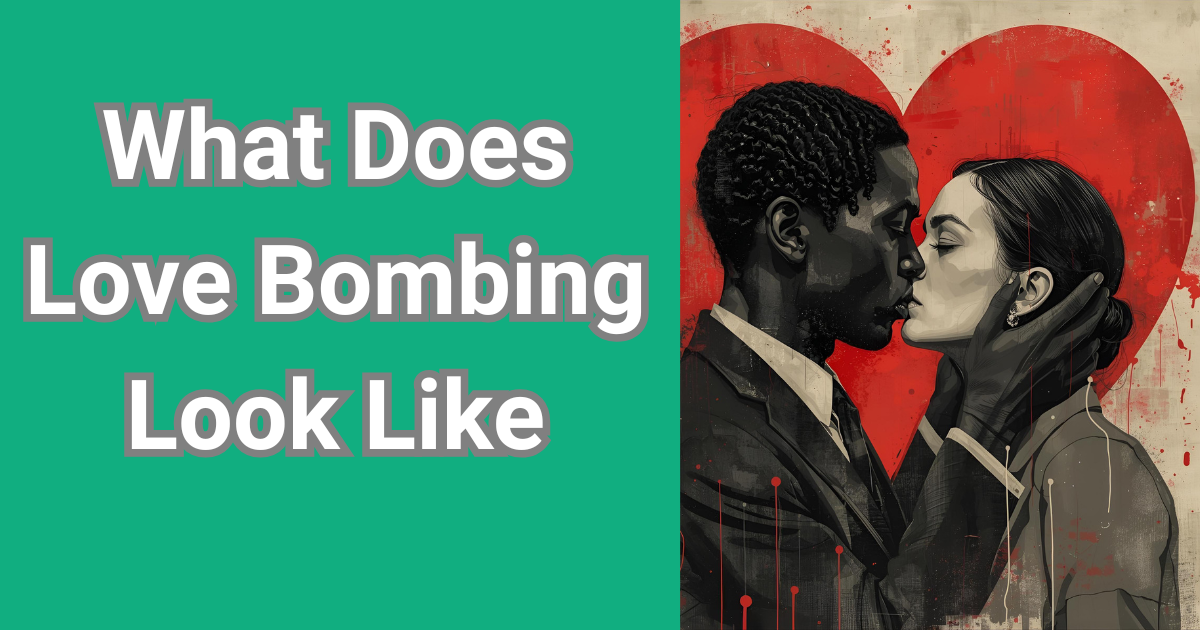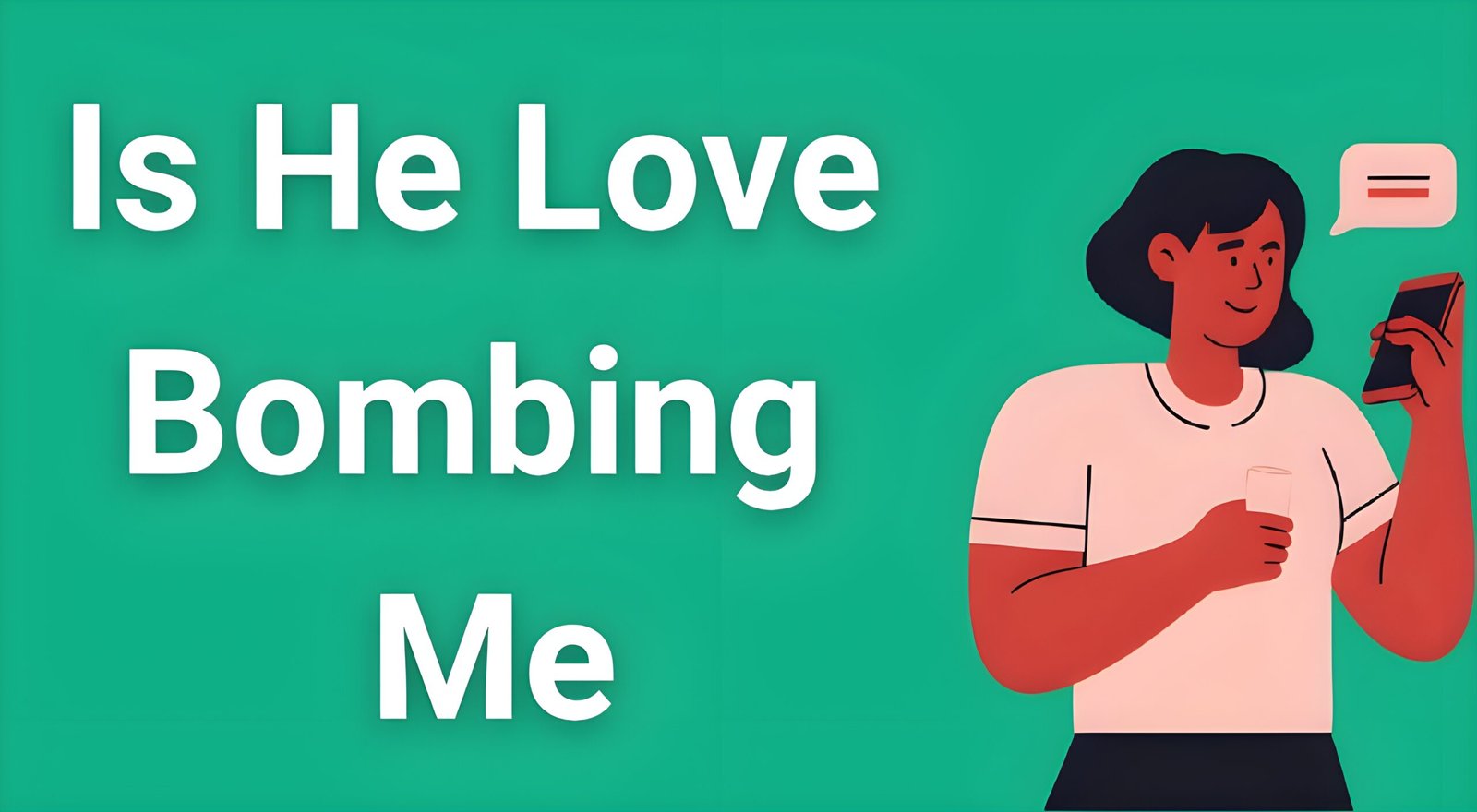If you’re desperately searching for answers about when does love bombing end, you’re likely trapped in an emotional whirlwind that feels impossible to escape. The intense affection that once felt like a fairy tale has started to feel overwhelming, and you’re beginning to sense something isn’t quite right. The truth is, love bombing doesn’t last forever—but understanding when and how it ends can help you recognize what’s happening and protect yourself from further harm.
- Understanding Love Bombing: When Affection Becomes Manipulation
- The Love Bombing Timeline: How Long Does It Really Last?
- 7 Clear Signs Love Bombing Is Coming to an End
- What Happens When Love Bombing Ends: The Devastating Shift
- The Psychology Behind Why Love Bombing Ends
- How to Survive When Love Bombing Ends
- Breaking Free from the Trauma Bond
- Healing and Recovery: Your Path Forward
- Preventing Future Love Bombing
- When Professional Help Is Needed
- The Science of Recovery: Why It Takes Time
- Frequently Asked Questions
- Conclusion: Your Freedom Starts with Understanding
Love bombing typically lasts anywhere from a few weeks to several months, with research showing an average duration of 3 to 5.5 months. However, the end of love bombing often marks the beginning of a more troubling phase in what mental health professionals call the narcissistic abuse cycle. Let’s explore everything you need to know about when love bombing ends, what triggers its conclusion, and most importantly, how to navigate what comes next.
Understanding Love Bombing: When Affection Becomes Manipulation
Before we dive into when does love bombing end, it’s crucial to understand what you’re actually experiencing. Love bombing isn’t genuine romantic enthusiasm—it’s a calculated manipulation tactic used primarily by individuals with narcissistic traits to quickly establish emotional control over their targets.
This manipulative behavior involves overwhelming displays of affection that feel too intense, too fast, and too good to be true. The person love bombing you might shower you with excessive compliments, lavish gifts, constant communication, and promises of a perfect future together—all designed to create a powerful emotional bond before you have time to think clearly about the relationship.
The psychological impact of love bombing is profound because it triggers powerful neurochemical responses in your brain. The flood of attention releases dopamine and oxytocin, creating an addictive cycle that makes you crave more of the same intense validation. This is why many survivors describe feeling like they were “addicted” to their abuser during the love bombing phase.
Many people experiencing this confusion find themselves questioning their own perceptions and desperately seeking validation about what they’re experiencing. If you’re struggling to understand whether what you’re experiencing is genuine love or manipulation, getting an expert perspective can provide the clarity you need to make informed decisions about your situation.
The Love Bombing Timeline: How Long Does It Really Last?
Research conducted with over 1,000 survivors of narcissistic abuse reveals fascinating patterns about when does love bombing end. The data shows that love bombing duration varies significantly based on several key factors:
Average Duration by Gender:
- Male narcissists: 5.5 months average
- Female narcissists: 3.5 months average
- Overall range: 2 weeks to 12+ months
- Most common duration: 1-4 months
Factors That Influence Duration:
The length of the love bombing phase depends heavily on how quickly the narcissist achieves their goals of establishing control and dependency. Some key factors include:
Your Resistance Level: If you’re naturally cautious or have strong boundaries, the love bomber may extend their campaign to break down your defenses. Conversely, if you’re particularly vulnerable due to past trauma, low self-esteem, or recent loss, the phase may be shorter because you become attached more quickly.
Life Circumstances: Major commitments often trigger the end of love bombing. Moving in together, getting engaged, becoming pregnant, or making significant financial commitments together can signal to the narcissist that they’ve successfully “hooked” you.
External Pressure: If friends or family express concerns about the relationship’s intensity, the love bomber might extend their campaign to further isolate you from these protective influences.
Narcissist Type: Grandiose narcissists tend to move quickly, while covert narcissists may take longer to establish control. Malignant narcissists often have the longest love bombing phases, sometimes extending over a year to ensure complete psychological capture.
Availability of Alternative Supply: If the narcissist has other sources of attention and validation, they may end the love bombing phase sooner to move on to fresh targets.
7 Clear Signs Love Bombing Is Coming to an End
Recognizing when does love bombing end isn’t always obvious because the transition can be gradual or sudden. However, survivors consistently report these warning signs:
1. Decreased Intensity of Affection The overwhelming attention that once felt constant begins to feel intermittent. Where you once received dozens of texts per day, you might now go hours without hearing from them. The daily flowers, surprise visits, and lengthy phone calls start becoming less frequent.
2. Introduction of Criticism Small criticisms begin appearing, often disguised as jokes or “helpful suggestions.” They might comment on your appearance, your friends, your career choices, or your family. These criticisms are testing your boundaries and beginning the devaluation process.
3. Conditional Love Emerges Their affection becomes tied to your behavior. You notice they’re only loving and attentive when you do exactly what they want, but become cold or distant when you assert independence or set boundaries.
4. Gaslighting Begins They start denying things they said or did, making you question your memory and perception. When you bring up concerns about their changing behavior, they might claim you’re being “too sensitive” or “imagining things.”
5. Isolation Tactics Intensify They become more possessive of your time and express jealousy or criticism toward your friends and family. They might create conflicts during important events or make it difficult for you to maintain other relationships.
6. Future Promises Become Vague The detailed future plans they once shared become non-committal or disappear entirely. When you bring up previous promises, they might claim they never made them or accuse you of being “too pushy.”
7. Your Gut Instinct Speaks Up Despite the continued affection, something feels fundamentally different. You might find yourself walking on eggshells, constantly trying to please them, or feeling anxious about their reactions to normal things.
What Happens When Love Bombing Ends: The Devastating Shift
Understanding when does love bombing end is only part of the picture—you also need to know what comes next. The end of love bombing typically marks the beginning of the devaluation phase, which can feel emotionally devastating because it’s such a stark contrast to the previous intensity.
The Devaluation Phase Begins
Once the narcissist feels confident they have secured your emotional attachment and dependency, they begin systematically devaluing you. This phase can include:
- Emotional Withdrawal: The person who once couldn’t get enough of you becomes distant, cold, or indifferent to your needs.
- Criticism and Put-Downs: Your qualities that were once “perfect” become sources of irritation or criticism.
- Gaslighting: They deny previous loving statements or behaviors, making you question your own memory and sanity.
- Silent Treatment: They use periods of complete silence as punishment for perceived slights or as a way to maintain control.
- Triangulation: They might bring up ex-partners, new friends, or other people to make you feel jealous and insecure.
Why This Shift Is So Traumatic
The end of love bombing is particularly devastating because it creates what psychologists call cognitive dissonance—the mental discomfort of holding two contradictory beliefs. Part of you knows something is wrong, but another part desperately wants to believe the loving person from the beginning was real.
This confusion is intensified by trauma bonding, a psychological phenomenon where the intermittent reinforcement of affection and cruelty creates a powerful attachment. Your brain becomes addicted to the highs of occasional affection, making it incredibly difficult to see the situation clearly or leave the relationship.
For many survivors, this is when they realize they need structured support to break free from the psychological chains that have been carefully constructed. The trauma bond that forms during this phase can feel stronger than any addiction, which is why specialized recovery approaches that address the neurological aspects of the bonding are often necessary.
The Psychology Behind Why Love Bombing Ends
To truly understand when does love bombing end, you need to grasp the psychological motivations driving this behavior. Love bombing isn’t sustainable for the perpetrator because it requires enormous amounts of energy and focus to maintain the facade.
The Narcissist’s Internal Motivations:
Control Achievement: Once the narcissist feels they have established sufficient control and dependency, they no longer need to invest the same level of energy into winning you over. They shift their focus to maintaining control through different means.
Devaluation as Power: Narcissists experience a sense of power and superiority by building someone up and then tearing them down. The love bombing phase sets the stage for this psychological dynamic.
New Supply Seeking: Many narcissists are constantly on the lookout for new sources of attention and validation. Once they feel secure in one relationship, they may begin pursuing others while maintaining minimal investment in existing relationships.
True Personality Emergence: The intense effort required to maintain the love bombing persona is exhausting. Eventually, their authentic personality—which often includes traits like entitlement, lack of empathy, and need for constant admiration—begins to show through.
Boredom and Novelty Seeking: The excitement of conquest wears off for many narcissists. Once they’ve “won” your devotion, the relationship becomes less interesting to them.
How to Survive When Love Bombing Ends
If you’re currently experiencing the end of love bombing, you’re likely feeling confused, hurt, and possibly desperate to return to the way things were. Here’s how to protect yourself during this vulnerable time:
Immediate Protective Measures:
Document Everything: Start keeping a private record of concerning behaviors, conversations, and incidents. This will help counter gaslighting and remind you of reality when you’re feeling confused.
Maintain Outside Connections: Resist the urge to isolate yourself. Reach out to trusted friends or family members, even if the narcissist has created conflict around these relationships.
Trust Your Instincts: If something feels wrong, it probably is. Don’t let anyone convince you that your feelings are invalid or that you’re “overreacting.”
Avoid JADE (Justify, Argue, Defend, Explain): When they criticize or attack you, resist the urge to explain yourself extensively. This often feeds into their need for control and can escalate conflicts.
Set Small Boundaries: Start with small, manageable boundaries to test their reaction and build your confidence in asserting your needs.
For those who find themselves unable to leave immediately due to financial dependence, children, or other complications, there are specific strategies for surviving and protecting yourself while you’re still in the situation. Understanding these protective measures can be crucial for maintaining your mental health and planning for eventual freedom.
Breaking Free from the Trauma Bond
One of the most challenging aspects of when love bombing ends is dealing with the trauma bond that has formed. This isn’t simply missing someone—it’s a neurochemical addiction that can feel overwhelming and impossible to break.
Understanding Trauma Bonding:
Trauma bonding occurs when cycles of abuse and affection create powerful psychological and chemical dependencies. Your brain becomes conditioned to crave the highs of occasional kindness, making the relationship feel impossible to leave despite the pain it causes.
The intermittent reinforcement schedule—unpredictable rewards and punishments—is the same psychological principle that makes gambling addictive. Your brain literally becomes addicted to the neurochemical cocktail released during moments of reconciliation or unexpected affection.
Signs You’re Trauma Bonded:
- Obsessive thinking about your abuser
- Making excuses for their behavior
- Feeling unable to leave despite knowing you should
- Physical symptoms when trying to stay away (anxiety, depression, panic attacks)
- Idealizing the early relationship phase
- Believing you can “fix” them or the relationship
Breaking the Trauma Bond:
Recovery from trauma bonding requires more than willpower—it requires rewiring your brain’s reward system and addressing the addiction-like attachment. This process typically involves understanding the neurological basis of your attachment and implementing daily practices designed to break the psychological chains.
The process often includes emergency stabilization techniques for moments of intense craving, reality reconstruction exercises to counter the idealization, and systematic approaches to reclaiming your identity and building resistance to future manipulation.
Healing and Recovery: Your Path Forward
Understanding when does love bombing end is just the beginning of your healing journey. Recovery from narcissistic abuse requires addressing both the psychological trauma and the neurochemical addiction that has formed.
The Recovery Process:
Phase 1: Stabilization (Weeks 1-4) Focus on basic safety, establishing no-contact or low-contact boundaries, and managing withdrawal symptoms from the trauma bond.
Phase 2: Processing (Months 2-6) Work through the cognitive dissonance, grief, and complex emotions surrounding the relationship. This often involves therapy, support groups, or structured recovery programs.
Phase 3: Integration (Months 6-12+) Rebuilding your sense of self, establishing healthy relationship patterns, and developing protection strategies against future manipulation.
Phase 4: Thriving (Ongoing) Moving beyond survival to creating a fulfilling life based on your authentic self and healthy relationships.
Essential Recovery Elements:
Professional Support: Consider working with a therapist who specializes in narcissistic abuse recovery. Traditional relationship counseling may not address the specific trauma and manipulation dynamics involved.
Education: Learning about narcissistic abuse patterns, trauma bonding, and manipulation tactics helps you understand what happened and reduces self-blame.
Community: Connecting with other survivors can provide validation, support, and practical advice from people who truly understand your experience.
Self-Care: Rebuilding your physical and emotional health through proper nutrition, exercise, sleep, and stress management techniques.
Boundary Practice: Learning to identify, set, and maintain healthy boundaries in all relationships moving forward.
Preventing Future Love Bombing
Once you understand when does love bombing end and recognize the patterns, you can protect yourself from falling into similar situations in the future.
Red Flags to Watch For:
- Excessive attention and affection too early in a relationship
- Pressure to commit or become exclusive quickly
- Over-the-top gifts or gestures that feel disproportionate to the relationship length
- Claims of instant deep connection or “soulmate” status
- Attempts to isolate you from friends and family
- Love declarations before they could reasonably know you well
- Future planning that feels rushed or unrealistic
- Difficulty accepting your boundaries or need for space
Building Resilience:
Strengthen Your Support Network: Maintain close friendships and family relationships that provide perspective and emotional support.
Develop Self-Worth: Work on building internal validation rather than seeking it primarily from romantic partners.
Take Relationships Slowly: Allow relationships to develop naturally over time rather than rushing into intense emotional intimacy.
Trust Your Instincts: If something feels too good to be true or makes you uncomfortable, pay attention to those feelings.
Maintain Independence: Keep your own interests, goals, and identity separate from any romantic relationship.
When Professional Help Is Needed
While some people can recover from love bombing and narcissistic abuse on their own, many benefit significantly from professional support. Consider seeking help if you experience:
- Persistent depression, anxiety, or panic attacks
- Difficulty functioning in daily life
- Thoughts of self-harm or suicide
- Inability to maintain no-contact despite knowing it’s necessary
- Repeated patterns of entering similar relationships
- Complex PTSD symptoms
- Substance abuse as a coping mechanism
- Significant impact on work, relationships, or physical health
Types of Professional Support:
Individual Therapy: Look for therapists trained in trauma, narcissistic abuse, or EMDR therapy specifically.
Support Groups: Both in-person and online groups can provide community and practical advice.
Psychiatric Care: If you’re experiencing severe depression, anxiety, or other mental health symptoms, medication might be helpful during the healing process.
Legal Consultation: If you’re dealing with divorce, custody issues, or harassment, specialized legal advice may be necessary.
The Science of Recovery: Why It Takes Time
Understanding the neurological impact of love bombing and trauma bonding can help you be patient with your recovery process. Research shows that narcissistic abuse actually changes brain structure and function, particularly in areas responsible for:
- Decision making and executive function
- Emotional regulation
- Memory and concentration
- Stress response
- Trust and attachment
These changes explain why recovery isn’t simply a matter of “getting over it” or “moving on.” Your brain needs time to heal and rewire itself, which is why recovery is often measured in months and years rather than weeks.
Factors That Support Healing:
- Consistent no-contact or minimal contact
- Trauma-informed therapy
- Strong social support
- Proper nutrition and exercise
- Stress reduction techniques
- Education about abuse dynamics
- Patience with the healing process
Frequently Asked Questions
How long does it take to recover from love bombing?
Recovery timelines vary significantly, but most survivors report feeling significantly better within 6-12 months of establishing no contact. Complete healing often takes 1-3 years, depending on the duration and intensity of the abuse, your support system, and whether you engage in therapy or other recovery work.
Can love bombing happen again after it ends?
Yes, absolutely. This is called “hoovering,” where the narcissist attempts to pull you back into the relationship by returning to love bombing behaviors. They might promise they’ve changed, apologize profusely, or recreate the magical feelings from the beginning. This is typically temporary and serves to restart the abuse cycle.
How do I know if it was really love bombing or just an enthusiastic partner?
Genuine enthusiasm in early relationships is accompanied by respect for your boundaries, willingness to go slow if you request it, and consistency between words and actions over time. Love bombing involves pressure, boundary violations, and a marked change in behavior once you’re committed.
Why do I miss the love bombing phase?
Missing the love bombing phase is completely normal and expected. The intense attention and affection triggered powerful neurochemical responses that your brain now craves. This is similar to withdrawal from any addictive substance and will decrease over time with no contact.
Can someone love bomb without realizing it?
While some insecure individuals might engage in over-the-top romantic gestures without malicious intent, true love bombing is typically a calculated manipulation tactic. The key difference is how the person responds when you set boundaries or express discomfort—healthy people will adjust their behavior, while love bombers will often escalate or become angry.
What should I do if I’m still living with someone who love bombed me?
If you can’t leave immediately, focus on emotional protection strategies: document concerning behaviors, maintain outside relationships, avoid escalating conflicts, and create a safety plan for leaving when possible. Consider contacting domestic violence resources for specific guidance on your situation.
Conclusion: Your Freedom Starts with Understanding
Understanding when does love bombing end is a crucial step in recognizing manipulation and protecting yourself from further harm. While the end of love bombing often marks the beginning of more overt abuse, it also represents an opportunity to see the situation clearly and take action to protect yourself.
Remember that love bombing isn’t about you being weak or gullible—it’s about someone else using sophisticated psychological manipulation to exploit your capacity for love and trust. The fact that it worked doesn’t reflect poorly on you; it reflects the calculating nature of the person who targeted you.
Recovery from love bombing and narcissistic abuse is possible, but it takes time, support, and often professional help. Be patient with yourself, trust your instincts, and remember that you deserve relationships based on genuine love, respect, and equality.
Your past experience with love bombing, while painful, has given you valuable knowledge about manipulation tactics and red flags. Use this wisdom to build stronger boundaries and healthier relationships in the future. You are not broken, and you are not responsible for someone else’s choice to manipulate and abuse.
The end of love bombing might feel like the end of love itself, but it’s actually the beginning of your opportunity to experience authentic, healthy love—starting with the love and respect you show yourself by refusing to accept anything less than you deserve.

